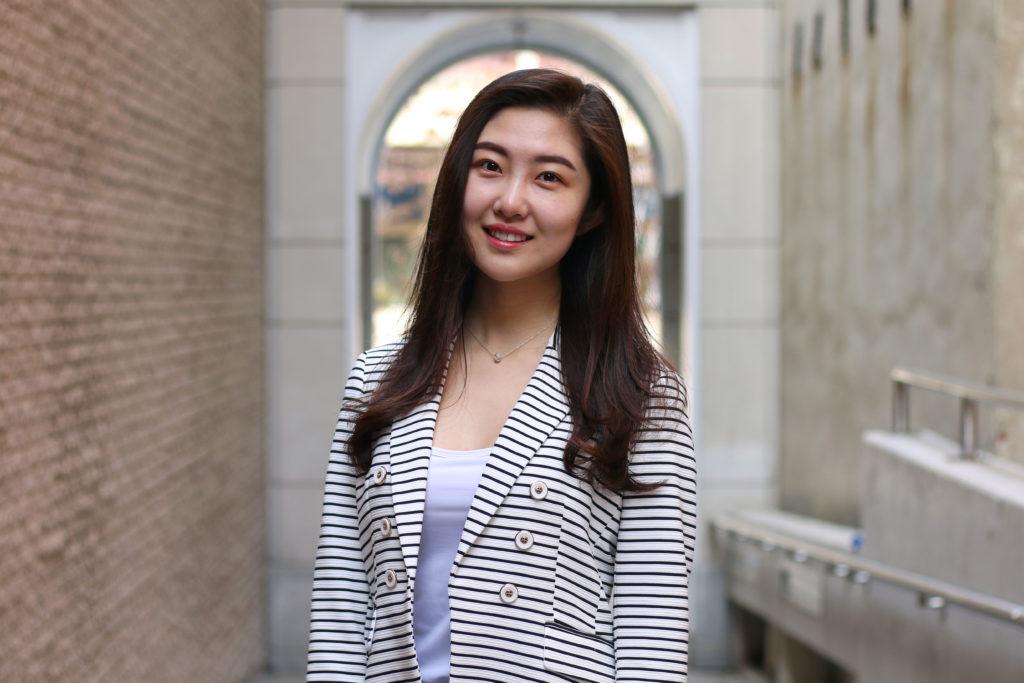The Student Association and International Students Association are trying to help first- and second-year international students find a go-to person to help them navigate homesickness and culture shock.
The two groups launched the International Friendship Portal on the SA website Monday, where underclassmen can schedule meetings with older international students to get academic or personal advice. Student leaders said the program will help international students adjust to life at GW and find a mentor in those who have similar experiences and may speak their native language.
“Sometimes, I want to reach out to other international students on campus or I want to know more experience from upperclassmen, but I don’t get the resources,” Avia Zhang, the president of ISA and the SA’s director of international students, said. “I thought maybe we can find a bridge to connect our international student community.”
She said about 15 international upperclassmen will serve as mentors. The portal features descriptions of each mentor, their picture and the schedule of times they are available to meet.
Zhang, an international student from China, said giving international students the chance to choose their own mentor allows them to meet with someone who might share the same major, interests or native language. She said students can grab coffee or go for a walk with mentors and discuss topics like classes, internship experiences or mental well-being.
“We think it might be helpful if we can create this platform for other international students to find their international buddies who can speak the same language as they do,” she said.
While the University’s international student population fell slightly this year, the group still makes up about 14 percent of the student body, according to institutional data. Officials aim to increase the international student population to comprise 12 to 15 percent of the undergraduate student body and 25 to 30 percent of the graduate population by 2022.
Zhang said the ISA and SA will promote the program to international students and potential mentors using social media, the associations’ listservs and email newsletters from the International Services Office and the Multicultural Student Services Center.
SA President Ashley Le said the portal, which will be available to both undergraduate and graduate international students, is different from other resources at GW because it aims to build “personal connections” rather than help students navigate technical forms or administrative documents.
“For almost every international student that I’ve known, homesickness and culture shock is something that is so prevalent,” she said. “Sometimes, it can be very difficult when they come to a new university and are trying to get into the student life here.”
Le said she spent the fall semester learning about current resources for international students so the new program would “not overlap” with existing initiatives.
The former SA president and the ISO collaborated last spring to expand resources for GW’s international population, including the launch of a student-led peer advising initiative and an airport welcome program.
The mentors will be required to keep their conversations with students confidential, according to information session materials obtained by The Hatchet. Le said mentors will also redirect students to the ISO for any questions about legal documentation.
Le said students are encouraged to meet face-to-face, but students could also call each other over the phone if they have a pressing question for their mentor.
In addition to a presentation describing their responsibilities, mentors will also receive mental health training from Colonial Health Center counselors to ensure they can properly answer questions from students seeking emotional support, Le said.
“We want them to know that it’s OK to talk about your mental health, and it’s OK to take care of your mental health,” Le said. “I think that’s why we want to make sure that mental health and mental well-being is a priority for advisers because this is a very difficult issue for a lot of different cultures in the world.”
Ghareeb Alqahtani, a senior from Saudi Arabia and a mentor, said he will use his own “difficulties,” like not knowing where to find other international students on campus, to give advice to students in similar situations.
“I had a hard time at the beginning not knowing anyone, not knowing where to go, not knowing where to eat, not knowing where to chill between classes,” Alqahtani said.
He said he would also talk with students about the frustration of not having a social security number, which can prevent international students from applying for off-campus jobs and internships. He said he would advise his mentees to find a job on campus as soon as possible so they can apply for a social security number more easily.
Alqahtani added that he wants to mentor students in casual settings, like Kogan Plaza or the District House food court.
“Some people can’t really talk to anyone unless they feel a certain type of connection with them,” he said. “I’m down to do that if that’s going to help people, if that’s going to make things better for them – and I am always up for a friend. I mean, who’s not?”



